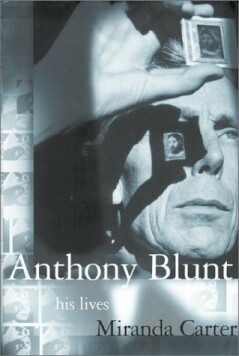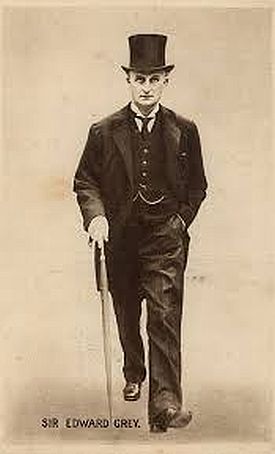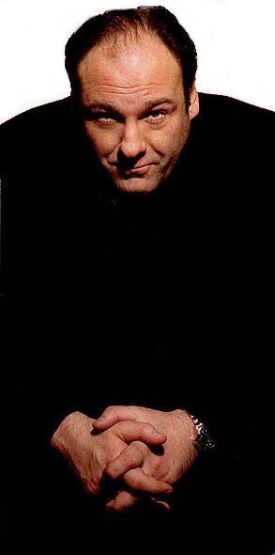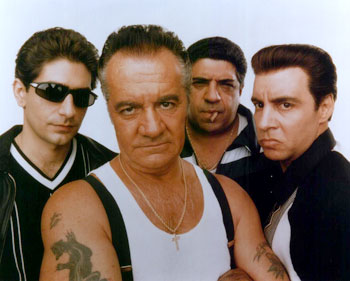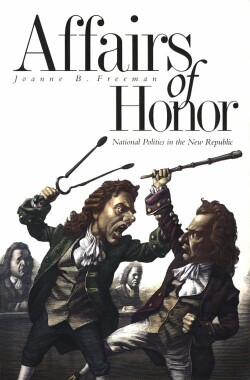He Spied Because He Had To?
ANTHONY BLUNT: HIS LIVES
by Miranda Carter
Farrar, Straus and Giroux, 590 pp., $30
0 374 10531 6
Miranda Carter herself might be suffering from the biographer’s version
of Stockholm syndrome, but that is no excuse for her quasi- pathography of the
British traitor and art historian Anthony Blunt. This is a book that
Blunt’s mother might have written, if she had lived through the shame of
his exposure as a spy for the Soviet Union and the “Fourth Man” in
the Burgess-Maclean-Philby scandal. It is very much, at any rate, a biography
à thèse and the thrifty and perspicacious reader ought to
be able to save himself a great deal of time plowing through its redundant
documentation of the following propositions by having them swiftly outlined for
him. They are:
(1) That Blunt, like most other public school boys of the period — at
least those who later became writers and intellectuals — was very unhappy
as a schoolboy and suffered under the barbaric conditions imposed on its pupils
by Marlborough School during the 1920s.
(2) That Blunt was also very unhappy as a homosexual since homosexuality was
illegal in Britain until 1967. “Blunt’s consciousness of the
illegality of homosexuality, which meant that his very identity broke the law,
may well have helped to make acceptance of Burgess’s approach seem less of
a big step,” she writes. Moreover, E.M. Forster’s famous aphorism
about betraying one’s country rather than one’s friends (quoted by
Blunt in his only public statement about his treachery) took on an added
resonance “for Blunt’s generation of homosexual men” since
“friends in innumerable ways provided a support network in a hostile
world, and defended the individual against the state. They kept one’s
secrets.”
(3) That, because of these unhappinesses, Blunt was of a cold and reserved
temperament and able to “compartmentalize” the things in his
life.
(4) That Blunt was of relatively humble social origins but had, nevertheless,
“a powerful desire for inclusion” and was remarkably successful at
ingratiating himself with the social élites he met at Cambridge. —
partly because of his homosexuality and partly because of his intelligence and
“perfect manners.”
(5) That Blunt was of a generation which had been taught by the slaughter of
the First World War to mistrust the “rigid out-of-date values of their
parents” and those who “held to the belief that the Great War had
been a righteous one” and to rebel against tradition and received wisdom
in all its forms.
(6) That Blunt was even more inclined to such an iconoclastic view of the
world because of the “narrow” and strait-laced religious views of
his pious parents and that “his spying scratched the old itch of anger
against the English bourgeois world.”
(7) That it was, nevertheless, from his upright but bourgeois parents that he
had inherited a strong moral sense, a social conscience and the
“missionary” urges which were to lead him to Communism.
(8) And, finally, that in the 1930s “even those not in the slightest
bit sympathetic to the Left recognized social breakdown on an unprecedented
scale” (as the future Tory prime minister, Harold Macmillan, put it,
“It had become evident that the structure of capitalist society in its old
form had broken down. . .” ) and saw the Communists as “the only
people who took the threat of Fascism seriously.”
In addition, Miss Carter spends a lot of time on Blunt’s career as an
art historian (too much, perhaps, not only for the general reader but also for
the long-term importance of his scholarship), but these parts can be skipped.
The real essence of the book lies in her attempts to establish those eight
propositions to explain and excuse a man who was so much an insider and part of
the Establishment that he became Surveyor of the Queen’s Pictures but who
nevertheless betrayed his country. She wants us to say, poor lamb! Of
course you were a traitor. Who wouldn’t be?
Oops! That’s the problem, isn’t it? Millions and millions
wouldn’t be. Millions who owed far less to the advantages of their nurture
than Blunt did and had far less happy childhoods. Indeed, Blunt’s
unhappiness at Marlborough has to be inferred from the testimony of friends and
in spite of the fact that Blunt himself said he was really quite happy there.
Even at Trinity College, Cambridge, at least at first, he is said to have been
“miserable” (again by inference, again though he is said to have
“forgot” the fact himself), even though he was quickly taken up by
the social élite of the University and elected to the secret society of
aesthetes and philosophers called the Apostles. Moreover, his homosexuality was
if anything a social advantage to him there.
Miss Carter implicitly recognizes how well Blunt fit in at Cambridge when she
accepts his remarkable claim that, by the mid-1930s, “almost every
intelligent undergraduate who came up to Cambridge joined the Communist party
some time in his first year.” Perhaps, she thinks, this had something to
do with “the sense of intellectual momentum generated by Cambridge science
during this remarkable period” which is said to have “encouraged
Blunt and others to believe that similar progress and similar certainties were
available in other areas of human activity — such as the great social
‘experiment’ in the Soviet Union.” How, we are meant to
reflect, was he essentially any different from these intelligent, intellectually
curious young idealists who just wanted to make the world a better place?
Oddly, however, when she turns to an account of Blunt’s career in
Military Intelligence, she tells us that his Communist past was no bar to his
employment there — even during the period of the Nazi-Soviet pact when
Blunt was already shipping secrets to his country’s enemies —
because “before the war, MI5 had been largely made up of a small group of
upper-class gentlemen, somewhat past their best, recruited at the bars of
Boodle’s and White’s, with First World War opinions to match.”
Such people, she means us to understand, were amateurs and duffers and so
remarkably insouciant about a youthful infatuation with Communism on the part of
those who worked for them during the war, regarding it as “a form of
undergraduate measles and not to be taken seriously.” Oh those First World
War opinions! But as a harmless and passing phase is precisely how she regards
it (in Blunt’s case) herself.
It’s true that she pays lip-service to the evils of
“Stalinism,” but her account of Blunt’s romance with it is
terribly tendentious. She simply re-states the party line on the Spanish Civil
War, for instance, calling it starkly “Democracy versus Fascism” and
so accounting for the enthusiastic pro-Communism of “democrats” like
Blunt. This is a shame because it dissipates some of the sympathy that we might
otherwise have felt for her portrait of Blunt in his old age, when he bore up
rather bravely — according to the Stoic precepts of his artistic hero,
Nicolas Poussin — under the humiliation, however well-deserved, of being
exposed to the world as a traitor, stripped of his knighthood and publicly
reviled by those who had been his friends and professional admirers.
Blunt himself never really apologized or appeared to feel any remorse over
his actions, but he did write to a friend “who knew what the
‘thirties were like” and so remained sympathetic to him: “How
wrong we all were — but much of the essential evidence about Russia
didn’t really get through to us until too late.” Appallingly
disingenuous as this claim is, it at least contains an acknowledgment of error.
Miranda Carter allows herself to become so much Blunt’s apologist that she
can hardly bear even to offer that much.
Discover more from James Bowman
Subscribe to get the latest posts to your email.

